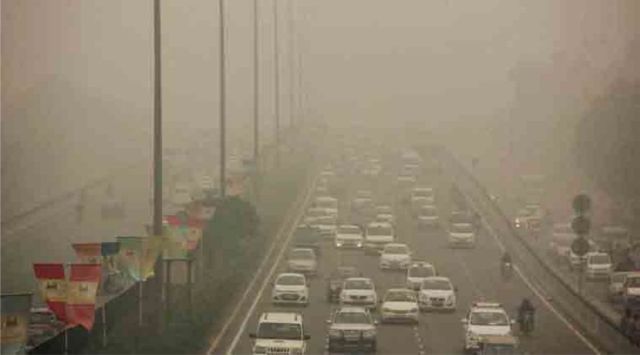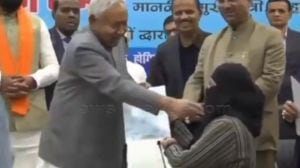Focus on health, ramping up Ujjwala scheme: Suggestions to curb NCR’s air pollution problem
The session, during which the Minister interacted with representatives of NGOs, was part of a two-day ‘Dialogue towards Clean Air’ organised by the Commission for Air Quality Management (CAQM) and the Ministry of Environment, Forest and Climate Change.
 Officials of the cities of Delhi, Faridabad, Ghaziabad and Noida had presented their city-specific action plans under the NCAP.
Officials of the cities of Delhi, Faridabad, Ghaziabad and Noida had presented their city-specific action plans under the NCAP.
The need to bring approaches related to health into plans and policies concerning air pollution, improving capacity and dealing with staff shortage at the local level, and scaling up the Ujjwala scheme were some of the suggestions that experts and members of NGOs presented to Environment Minister Bhupender Yadav Monday.
🗞️ Subscribe Now: Get Express Premium to access the best Election reporting and analysis 🗞️
The session, during which the Minister interacted with representatives of NGOs, was part of a two-day ‘Dialogue towards Clean Air’ organised by the Commission for Air Quality Management (CAQM) and the Ministry of Environment, Forest and Climate Change. The discussions that will continue on Tuesday are geared towards deliberating measures to deal with the NCR’s air pollution problem.
The National Clean Air Programme (NCAP), which was launched in 2019 with the aim of achieving a 20%-30% reduction in PM 10 levels by 2024, was discussed. The 132 cities that are included under the NCAP were to prepare their own city-specific action plans. While presenting suggestions to the Minister, Poornima Prabhakaran of the Public Health Foundation of India said that the health lens had not been included in any of the plans.
“The NCAP shows integration with seven ministries, but the health ministry is missing,” Prabhakaran said. Health impact assessments need to be brought to the centre of the discourse, and there is a need to bring the health lens into our policies and programmes, she added.
On integrating policies related to health and environment, Bhargav Krishna of the Centre for Policy Research said that scaling up the Ujjwala Scheme could be a step in the right direction. The scheme aims at providing women with clean cooking fuel.
Pratima Singh, scientist at the Centre for Study of Science, Technology and Policy, said that if measures are identified, but not implemented, the 2024 deadline will be missed. “The plans have been copy pasted with just a few changes,” she said, while speaking to the Minister.
While Urban Local Bodies have been given money, they have not been given any framework on allotting this to other departments, she added, emphasising that the plans won’t work till the local bodies and departments have understood how to implement them.
There is also a need to put the impact assessment of interventions made to reduce air pollution out in the public domain, according to Tanushree Ganguly, researcher at the Council on Energy, Environment and Water.
Officials of the cities of Delhi, Faridabad, Ghaziabad and Noida had presented their city-specific action plans under the NCAP.
Representatives from local bodies, and from the Pollution Control Boards and governments in the NCR, attended the session.
According to the city specific plan for Delhi presented by Sanjeev Khirwar, Principal Secretary, Environment and Forest, Delhi, December 2024 is the target to complete remediation of landfills in the city. There has been a reduction in landfill fires, from 150 incidents in 2017-18, to four fire incidents reported this year, Khirwar’s presentation said.
Minister Yadav said that solid waste management and the burning of waste is a major issue in the NCR. “One of the biggest aspects of NCAP is that municipalities must think about solid waste management,” he said. Dust management from construction sites is also important, he added.
Biomass burning is another issue in the NCR, the Minister said. “We will not criminalise burning of biomass. Farmers need to be given incentives, and motivated to use it. The government has floated a tender to purchase crop residue. The crop residue is not waste. It is an asset and a source of income,” he said.







